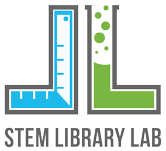The New Orleans Advocate, 08/09/2019, by Celeste Turner, photo by Chris Granger –
Much the same way that a card-carrying member can walk into a public library and come out with a book, teachers can walk into the STEM Library Lab in Gentilly and borrow everything from microscopes to anatomically correct mannequins.
The library lab is the creation of Todd Wackerman, a former teacher and business graduate of Tulane University. It allows schools for kindergartners through 12th graders to purchase a $2,500 annual membership for unlimited access to science equipment valued at over [$120,000].
Teachers can check out typical science equipment like labwear, balances and beakers, as well as content-specific items like animal/plant cell kits, magnets and iron filings, or a stream table for hands-on science in their classrooms.
The typical checkout period is a week. The equipment isn’t a panacea for teaching science effectively. “Access to science equipment is only a small part of the problem that teachers have,” said Wackerman, who taught six years in Orleans Parish and earned a master’s degree in education from the University of New Orleans in 2014. “So many issues create barriers to implementing hands-on science.
“At STEM Library Lab, we … include training teachers in how to use the equipment, lab-specific classroom management techniques and content specific lesson-planning assistance.”
For Arielle Hunter, an 11th grade biology teacher at Livingston Academy in New Orleans East, the library lab has ignited student engagement in the classroom.
“STEM Library Lab is a great resource for teachers,” said Hunter, who has recently become the head of the science department at Collegiate Academies Network. “These students are talking about it before and after class, asking more questions and showing more enthusiasm about coming to class. They were also able to form deeper connections with the materials and see how science works.”
Hunter said she borrowed equipment primarily used for biology, such as anatomy models, specific chemicals, petri dishes and measuring tools, which may not always be available within the school’s inventory or budget. “We actually analyze and formulate data to form conclusions. We also learned to dissect frogs and work with dissection kits. What a great experience for the students,” she said.
STEM Library Lab is also a resource hub, offering teachers professional development opportunities, lesson plans, access to outside experts and a network of like-minded teachers.
“STEM Library Lab really helped me as a teacher. I spent more time lesson-planning, instead of concentrating on getting the materials,” Hunter said. “They would have brainstorming labs in which I could ask about a piece of equipment — for example, the ecosystem labs. I could give their librarian a call and get some ideas of how other teachers used the equipment in class.”
Wackerman said teachers who have borrowed a specific tool or activity kit are invited to come show other teachers how to use it.
Outside experts also are invited to show teachers how to lead a particular science lab or engage students on a specific topic.
“With STEM Library Lab, I want to help teachers across the spectrum — from proactive veteran science teachers who just need access to the equipment, to newer teachers and grade-level teachers who may have little experience or content expertise but know they want new ways to engage students with inquiry and hands-on learning,” Wackerman said.
That might mean talking to them about practical problems such as whether it’s better to break students into 12 groups with two kids each or six groups of four kids each.
“It’s a little less hands-on, but your life is going to be easier with less groups,” Wackerman said. “It’s things like that for teachers who haven’t done labs before.”
The library has 16 local schools renewing their annual memberships and five new members for the upcoming school year.
Wackerman is inviting local businesses to help sponsor a school and pay half its $2,500 yearly membership fee.
“In 2018, we started with seven members and have grown to 21, but the library still has the capacity to serve more students and schools. Our goal for this school year is to serve between 30 and 40 schools across greater New Orleans,” he said.
Wackerman started the library by appealing to local foundations that gave seed money to start the on-demand lending model. “We put everything online, and we’ll buy it as soon as you ask for it. We’ll buy anything but only purchased what was in demand,” he said.
He hopes membership dues will make the library self-sustaining in the next couple of years.
Meanwhile, he is still looking to partner with foundations to expand the inventory, eventually beyond STEM subjects, to include social studies, art and early childhood collections.
Cierra Brown, 18, a student at Livingston Collegiate Academy, attests to the attraction of hands-on learning. She took Hunter’s biology class last year.
“I found biology class to be so interesting,” said Brown, who will take physics this school year. “This was my favorite class because we dissected a frog in class. I was able to take out the parts with the different tools and discovered if the frog was male or female. I was fascinated when we dissected the female with eggs.”
“With STEM Library Lab, the science equipment was easily accessible and convenient as far as picking up materials. STEM Library Lab served as a great resource for teachers and the in-class experiments made the kids fall in love with science again,” Hunter said.

